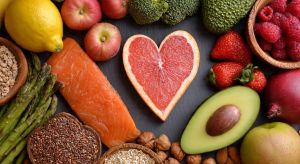How Nutrition Supports Brain Health as We Age
June is Alzheimer’s and Brain Health Awareness Month, a time to highlight the importance of cognitive wellness, especially as we grow older. While there’s no magic pill to prevent memory loss or dementia, research shows that what we eat can have a powerful impact on how well our brains function over time.
In fact, small, consistent dietary choices can help support memory, focus, and overall brain health well into later life. Let’s take a closer look at how nutrition supports cognitive function and explore a few simple steps you can take to keep your brain sharp.
The Brain–Nutrition Connection
The brain is an energy-intensive organ. Although it makes up only about 2% of your body weight, it uses more than 20% of your daily calories. The food you eat becomes the fuel your brain depends on to regulate mood, retain information, and stay alert. Over time, the quality of that fuel really starts to matter.
Studies show that certain eating patterns, like the Mediterranean Diet and the MIND Diet (a blend of the Mediterranean and DASH diets), are associated with a lower risk of cognitive decline and Alzheimer’s disease. These diets focus on whole, nutrient-rich foods and limit processed items that can contribute to inflammation and oxidative stress—two key factors in age-related cognitive changes.
5 Actionable Steps to Support Your Brain Through Nutrition
- Add More Plants to Your Plate
Fruits and vegetables, especially dark leafy greens like kale and spinach, and antioxidant-rich foods like berries, are known to protect the brain. These foods help reduce inflammation and fight oxidative stress that can damage brain cells.
Try this: Add an extra serving of vegetables to one meal today. Toss spinach into your eggs or enjoy a side salad at dinner.
- Choose Healthy Fats That Support Brain Structure and Function
Omega-3 fatty acids, found in fatty fish like salmon and sardines, support brain structure and communication between cells. These fats are especially helpful for maintaining memory and focus.
Try this: Aim to eat fish twice a week, or sprinkle chia seeds or walnuts on yogurt, oatmeal, or salads.
- Fuel Your Brain with Whole Grains
Whole grains like oats, quinoa, brown rice, and whole wheat bread provide steady energy for your brain. Unlike refined grains and sugary snacks, they help regulate blood sugar and support better concentration.
Try this: Swap white bread or pasta for whole grain versions. Choose oatmeal instead of sugary cereal to start your day.
- Stay Hydrated for Mental Clarity
Even mild dehydration can affect memory and attention. As we age, our sense of thirst can decline, making it even more important to be intentional about drinking enough fluids.
Try this: Keep a water bottle with you and sip throughout the day. Try infusing water with cucumber, mint, or lemon if you don’t enjoy the taste of plain water.
- Be Mindful of Added Sugars and Saturated Fats
A diet high in processed foods, added sugars, and saturated fats has been linked to a higher risk of cognitive decline. Reducing these can help support both brain and heart health.
Try this: Trade sugary drinks for unsweetened iced tea or sparkling water. Snack on almonds or fruit instead of cookies or chips.
Bonus Tip: Feed Your Brain with Connection and Movement
Food matters, but it isn’t the whole picture. Regular exercise, quality sleep, and social connection all play important roles in brain health. The YMCA offers group fitness classes to keep your body active, social activities that foster a sense of community, and mental health programs to support emotional well-being. These programs don’t just benefit your body—they give your brain a boost too.
Final Thoughts
There is no single food that will guarantee perfect memory. But there is strong evidence that consistent, healthy eating habits can help protect your brain over time. By choosing whole foods, staying hydrated, and making time for movement and connection, you are taking meaningful steps toward a sharper, healthier mind.
This June, take one small action to support your brain. Whether it’s adding a veggie to your lunch, drinking an extra glass of water, or joining a group exercise class at the YMCA, it all adds up.
Your brain—and your future self—will thank you.
Ready to take your nutrition to the next level?

About Sara Dow
Sara Dow is an ACE-certified Personal Trainer, Weight Management Specialist, and Fitness Nutrition Specialist. She holds a Bachelor of Science in Nutrition and Dietetics from Kansas State University and is currently pursuing her master’s degree in Human Nutrition through the University of Alabama. Sara is passionate about helping people improve their quality of life through the power of nutrition, exercise, and community.
Want to level up your nutrition? Register for a One-On-One Performance Nutrition Workshop with Sara. In this 60-minute session, Sara will provide evidence-based guidelines for pre- and post-workout nutrition specific to your goals, healthy recipes, and practical tips for incorporating real foods into your diet to support optimal performance and recovery. Click here to register today!
![[Glacial Community YMCA LOGO SQ]](https://recliquecore.s3.amazonaws.com/imgs/ymca_logos/named_y/blue_purple.png)
![[Glacial Community YMCA LOGO FULL]](https://s3.amazonaws.com/recliquecore/imgs/ymca_logos/named/blue_purple.png)




